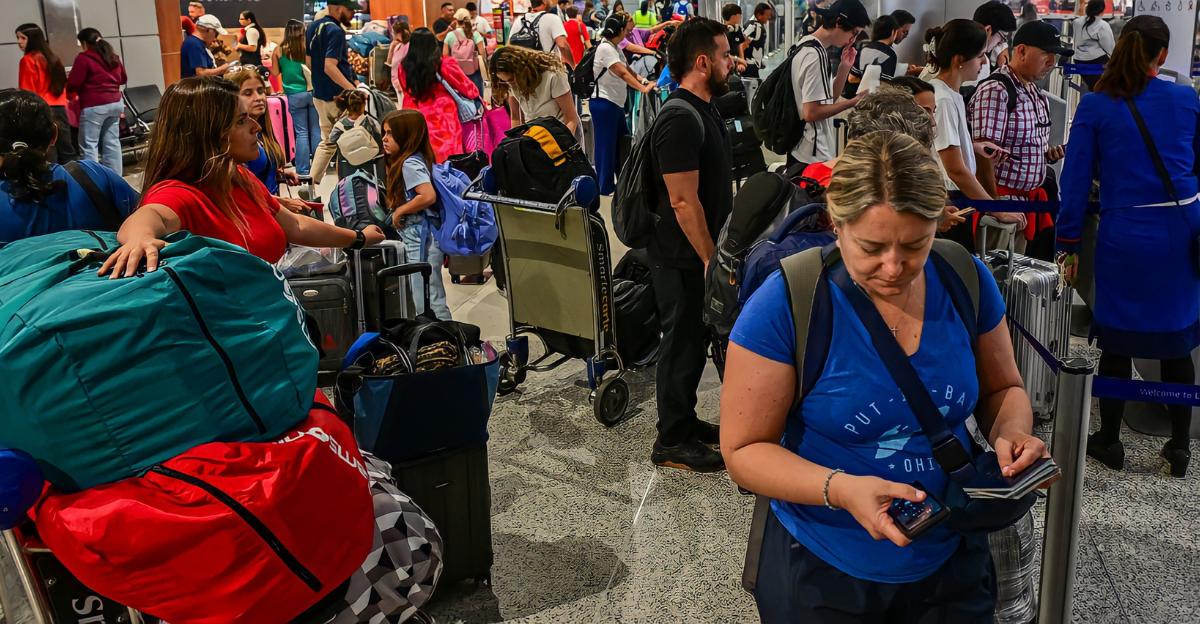
You might think that most people are avid flyers by now, but you’ll be surprised by some common mistakes people still make when heading to their next destination. Small mistakes add up, sometimes leading to missed flights, ruined travel plans, unnecessary expenses, and plenty of frustration.
Whether you’re a frequent flyer with miles under your belt or someone preparing for their very first trip, understanding these errors is the key to ensuring your next adventure begins smoothly and ends on a high note.
1. Not Checking the Weather Before Packing
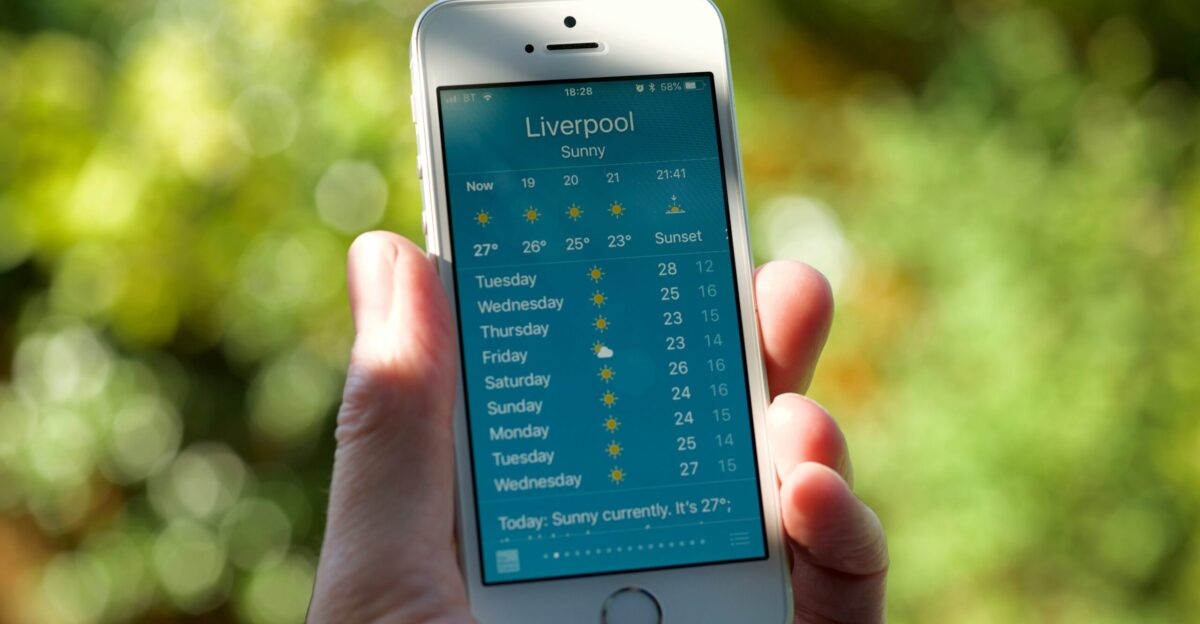
You might think you know what the weather will be like when you get to where you’re going, but don’t be too quick to judge. It’s easy to assume that certain places will have predictable climates or to glance at the current temperature and call it a day. However, weather can change quickly, and failing to prepare properly can leave you uncomfortable or unprepared for severe weather conditions.
Imagine planning a trip to Italy and packing for a summer vacation, only to get there and realise it’s the middle of winter and you have nothing but bikinis and sundresses.
2. Exchanging Money at the Airport
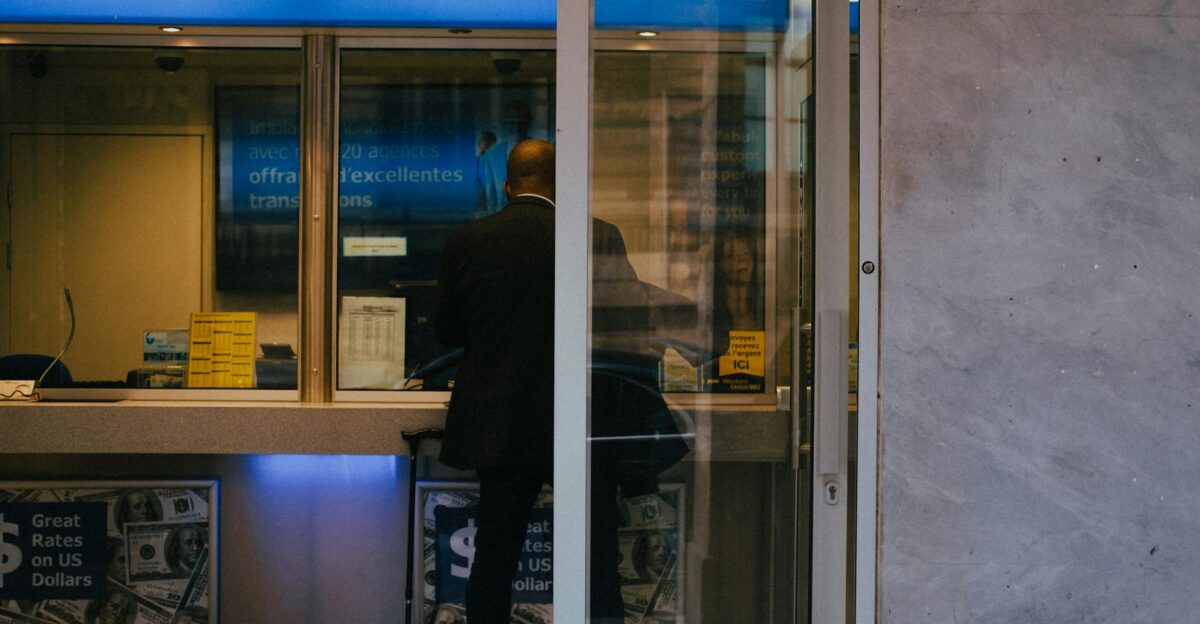
This simple mistake can take a hefty bite out of your budget as those currency exchange kiosks near arrivals or departures may seem like an easy fix if you need cash quickly, they’re also notorious for offering some of the worst rates available. Airports know they’re catering to a captive audience, so they often charge inflated exchange rates and pay substantial service fees.
In fact, the rates at airport kiosks can be 10–15% higher than what you’d find at banks or ATMs outside, and additional fees are usually well hidden until you’ve completed the transaction.
3. Packing All Your Essentials in Checked Baggage
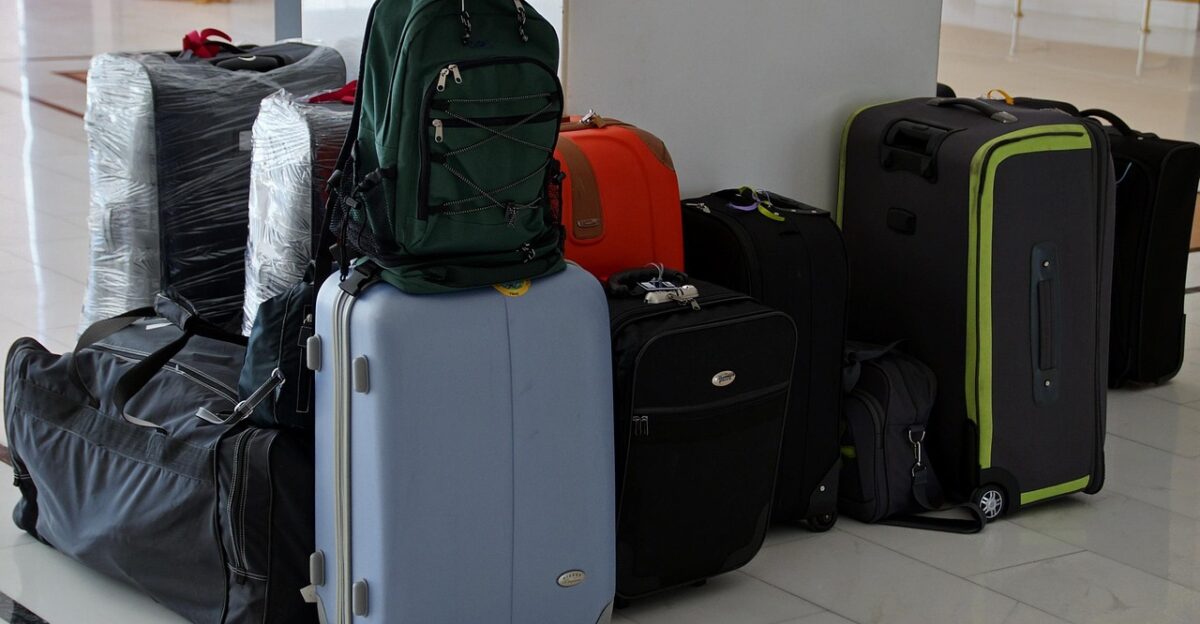
What could be worse than losing your luggage and not having a single thing you need in your carry-on? Airlines mishandle millions of bags every year, meaning placing items you need in your checked bag puts you at significant risk of being stranded or forced to make expensive last-minute purchases if your bag doesn’t arrive with you.
Always pack these essentials in your carry-on bag to keep them within reach throughout your journey. Some items might not be as easy to replace as others, and if you’re not careful, they might ruin your whole trip.
4. Overpacking

You know how they always say less is more? Well, in this case, that couldn’t be more true. Hauling around excess baggage makes navigating airports, public transport, and hotels exhausting. Also, it puts you at risk of paying costly excess baggage fees, which airlines often charge when your bags exceed set weight limits.
There’s also less room for souvenirs and spontaneous purchases, and your mobility and spontaneity are hindered as it’s harder to say yes to an impromptu walking tour or last-minute side trip when you’re carrying around half your weight in luggage.
5. Not Checking in Online

Many airlines now offer online check-in 24–48 hours before departure, allowing travelers to confirm their presence, choose or change seats, purchase add-ons, and even upload travel documents from the comfort of home. Waiting to check in at the airport means you’ll likely face longer queues, especially during busy travel periods, and increase your risk of missing out on preferred seats or being assigned undesirable ones.
An online check-in can make your life so much easier, especially if you have a domestic flight with only a carry-on to take along. You’ll skip the queues and be at your destination in no time without dealing with all the waiting.
6. Booking Impossibly Short Connections or Separate Tickets for One Trip
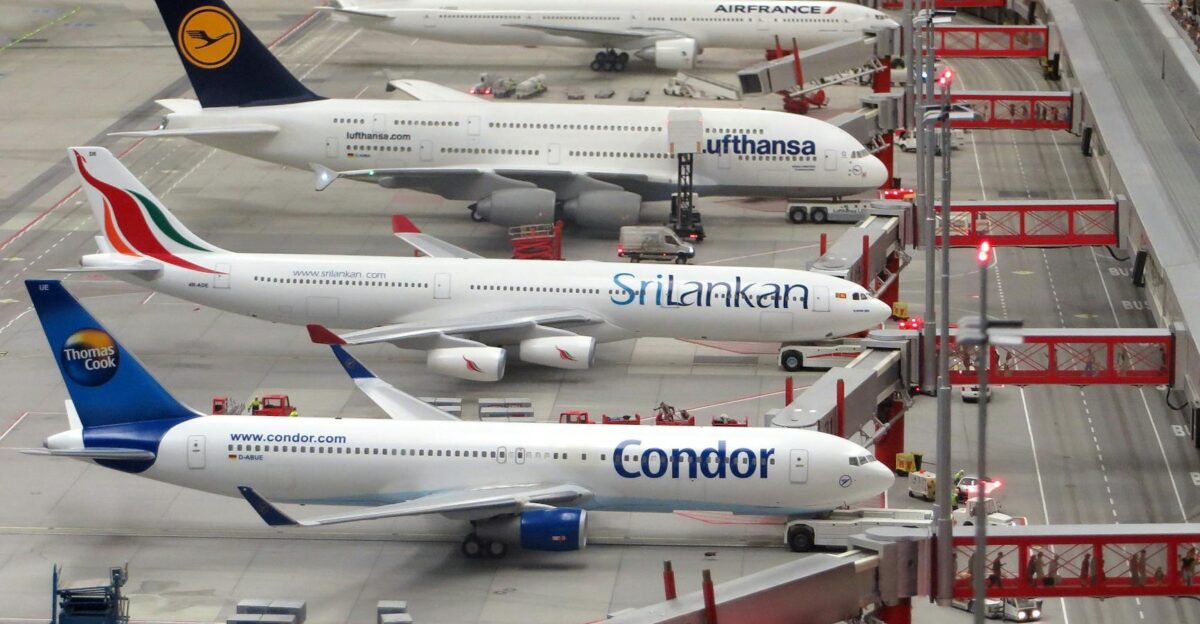
Many travelers try to save money or time by choosing tight connections between flights, or by booking separate tickets with different airlines, sometimes even from different airports. But what looks manageable on paper can become a nightmare if your first flight is delayed or if you have to go through customs, re-check bags, or clear security again before your next departure. Airlines typically recommend a minimum connection time for a reason, and missing it almost always means you’ll be rebooked on a later flight, if at all.
Even worse, when you hold separate tickets, airlines usually bear no responsibility for delays or missed connections; you may have to buy new tickets out-of-pocket, and your checked bag might not be automatically transferred.
7. Arriving Late at the Airport
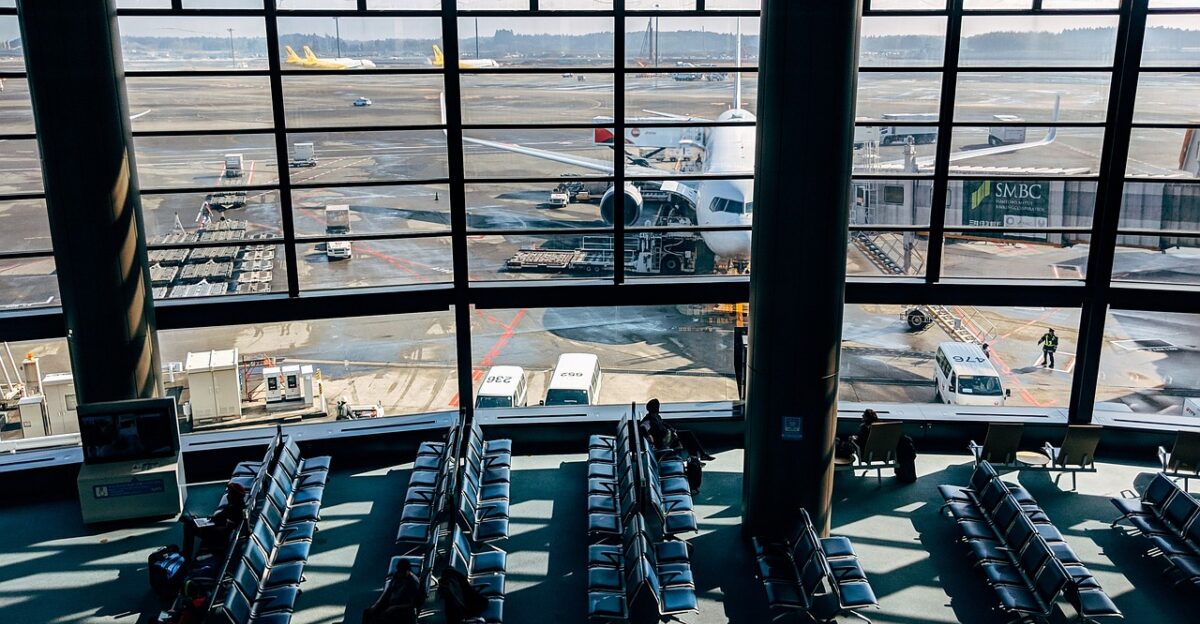
You might think you’ll have enough time to get everything done before your plane leaves, but that might not always be true. Many underestimate how long it takes to get through check-in lines, security screenings, baggage drops, and walking to distant gates, especially at larger or unfamiliar airports.
Arriving late increases your risk of missing your flight entirely, particularly if you’re flying internationally when airlines typically close check-in counters well before departure. A rushed arrival means you’re less likely to handle last-minute changes calmly, purchase snacks or essentials, or enjoy the airport experience even if you make your flight.
8. Not Choosing a Seat Ahead of Time
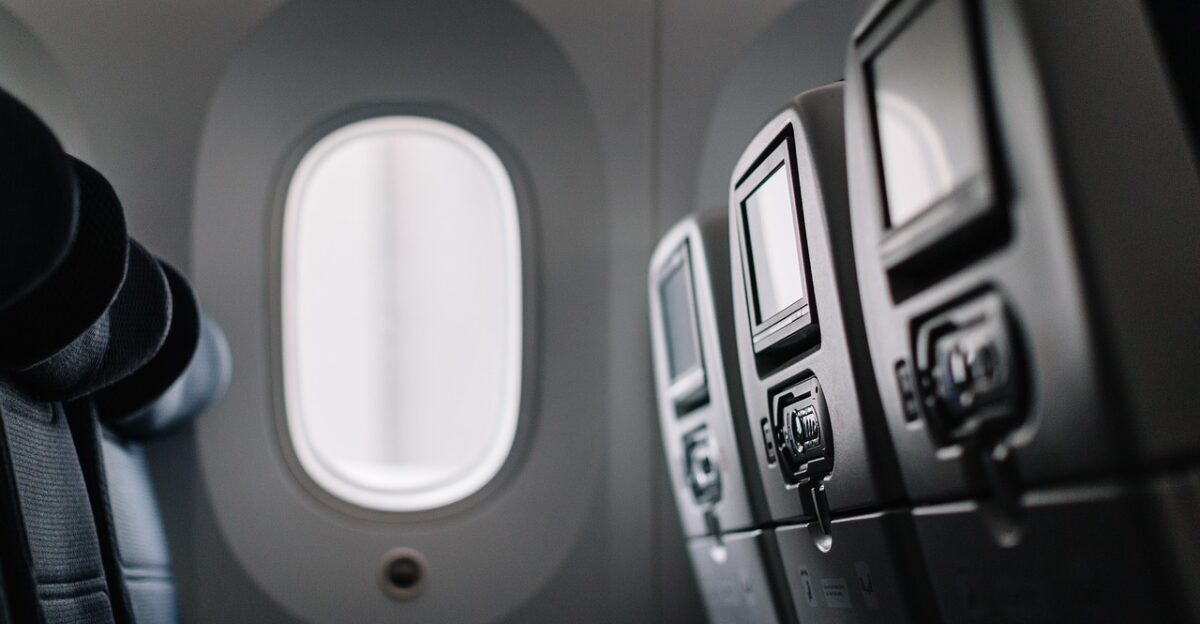
It may not seem like a big deal to most, but choosing your seat before the flight is important, especially if you’re travelling with someone else. If you wait until the last minute or leave it up to chance at the airport, you run the risk of being stuck with whatever seats are left, which are often the least desirable spots, such as middle seats, seats near the lavatories, or at the very back of the plane.
Families and groups who don’t pre-select seats may find themselves separated, and those hoping for extra legroom or a window view may be disappointed.
9. Not Double-Checking Departure and Airport Details
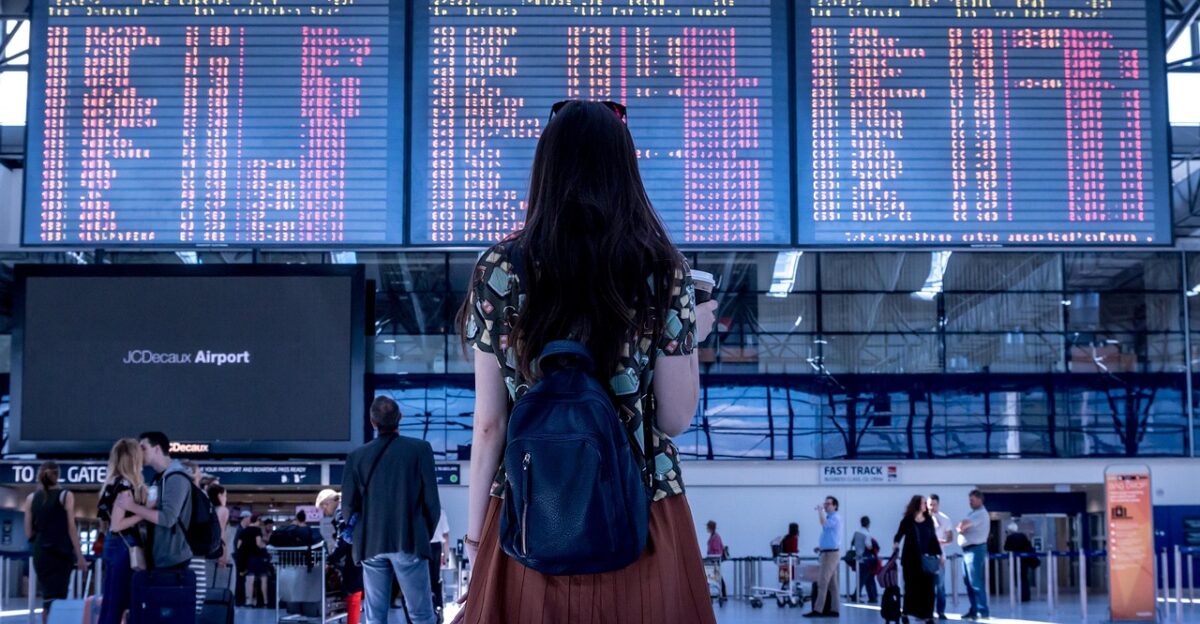
You might think that you know every detail about your flight, but checking for the 20th time will make sure you don’t miss a single thing. In busy metro areas, cities frequently have multiple airports, and it’s too easy to show up at the wrong terminal or airport, especially if your city has both a domestic and an international hub with similar names.
It’s also common for flight schedules to change due to airline changes, weather, or scheduling adjustments, sometimes moving your departure up or pushing it later without much warning.
10. Bringing Oversized Carry-Ons
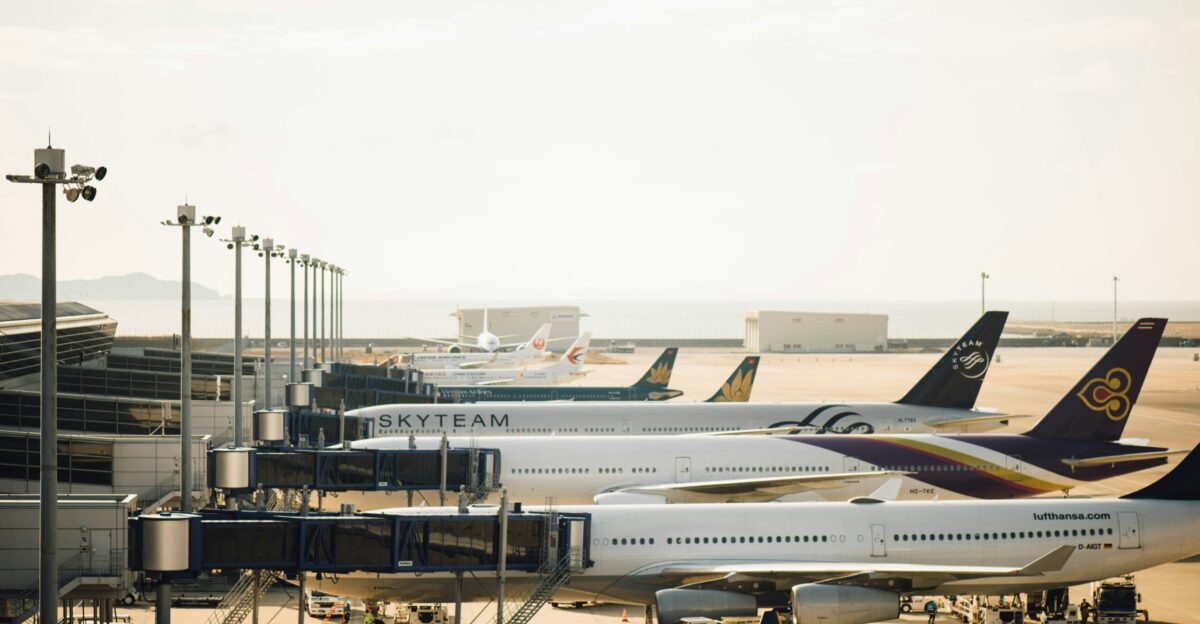
Most airlines enforce strict size and sometimes weight limits for carry-on bags, typically not exceeding 22 x 14 x 9 inches including handles and wheels, and a weight of around 15 lbs on many international and low-cost carriers. The policies can vary by airline and plane size, so travelers who push the limits hoping for leniency are often disappointed when strict enforcement occurs, especially on busy routes and budget airlines.
Avoid this headache by carefully checking your airline’s baggage policy ahead of time, measuring your bag with all pockets and wheels included, and leaving a little margin for error.
11. Not Checking Visa or Document Requirements
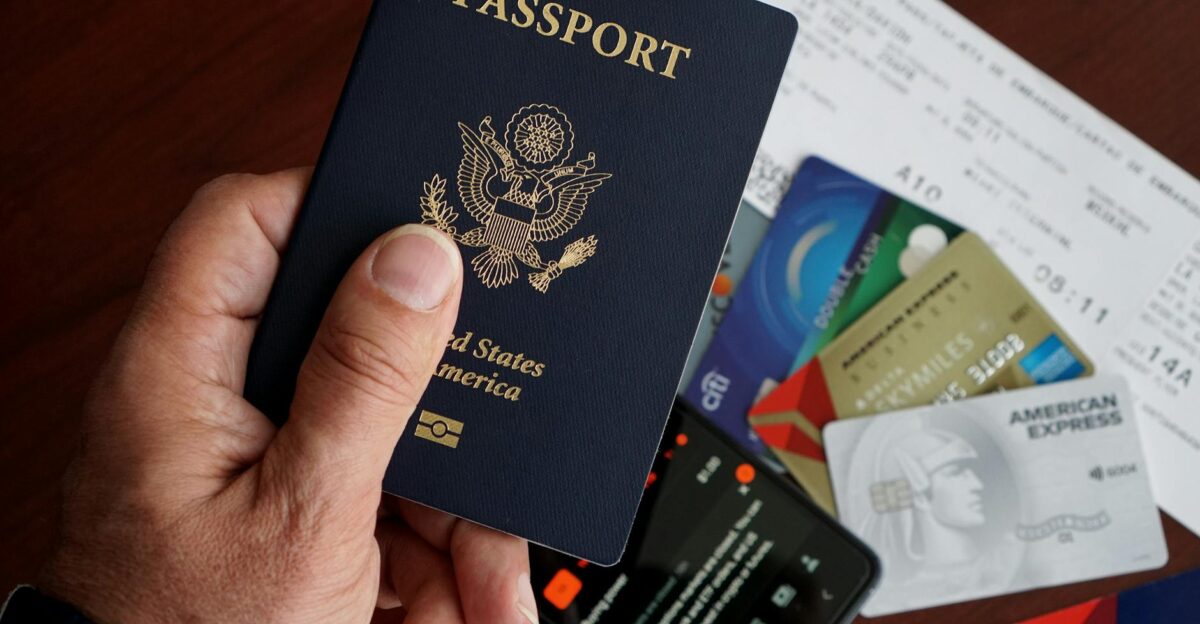
Many travelers assume that a valid passport is enough, only to be turned away at the airport or denied boarding when they discover they need a visa or additional documentation to enter their destination country. Visa policies vary widely, and requirements include online e-visas to embassy applications weeks in advance, proof of onward travel, or evidence of sufficient funds.
To avoid costly disruptions or denied boarding, research your destination’s official entry requirements well before your trip, and gather and organize all needed documents before departure.
12. Booking Flights at Odd Hours Without Considering Onward Transport
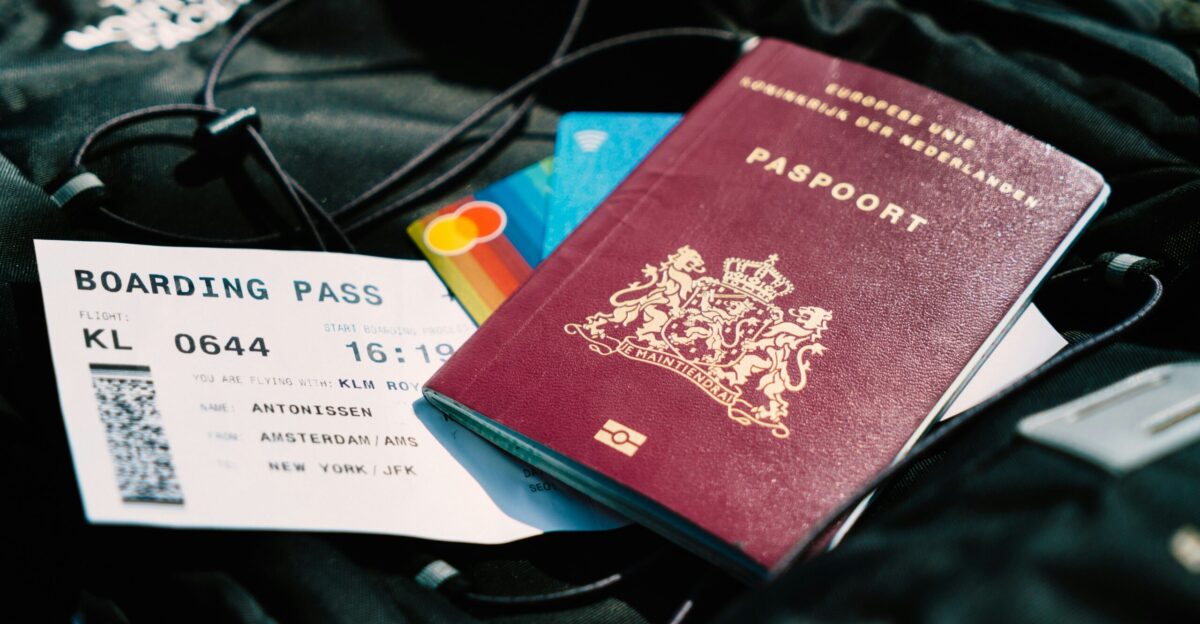
You might want to save a few bucks by choosing a flight at odd hours, but it’s important to keep in mind that you’ll still need transport from the airport when you get to your destination. Sometimes, hotels and accommodations may have restricted check-in times, adding another layer of logistical problems if you arrive at midnight or before dawn. Planning your flights without considering how you’ll get to and from the airport at these odd hours can turn what looked like a smart travel deal into a stressful start or end to your journey.
13. Not Charging Your Electronics Before Your Flight

This may not seem like such a big deal, but there’s nothing worse than being stuck at an airport and not having access to your phone in case you need something. You could risk losing access to boarding passes, booking confirmations, maps, entertainment, and essential communication tools. While some modern airports and airplanes offer charging stations or in-seat power outlets, these are not guaranteed, and they’re often in high demand or not functioning properly.
14. Not Packing Your Own Snacks

Airport food courts and in-flight meal services are notoriously expensive, and choices are often limited, especially if you have dietary restrictions, food allergies, or are traveling on budget airlines that don’t provide complimentary meals. Delays, long layovers, or even short flights can leave you waiting hours for your next proper meal, and relying exclusively on available airport or in-flight offerings can mean going hungry or settling for unhealthy, processed snacks.
It’s always safer to bring your own snacks. This way, you can be sure that you’re full and happy without having to settle for something not-so-great that costs you an arm and a leg.